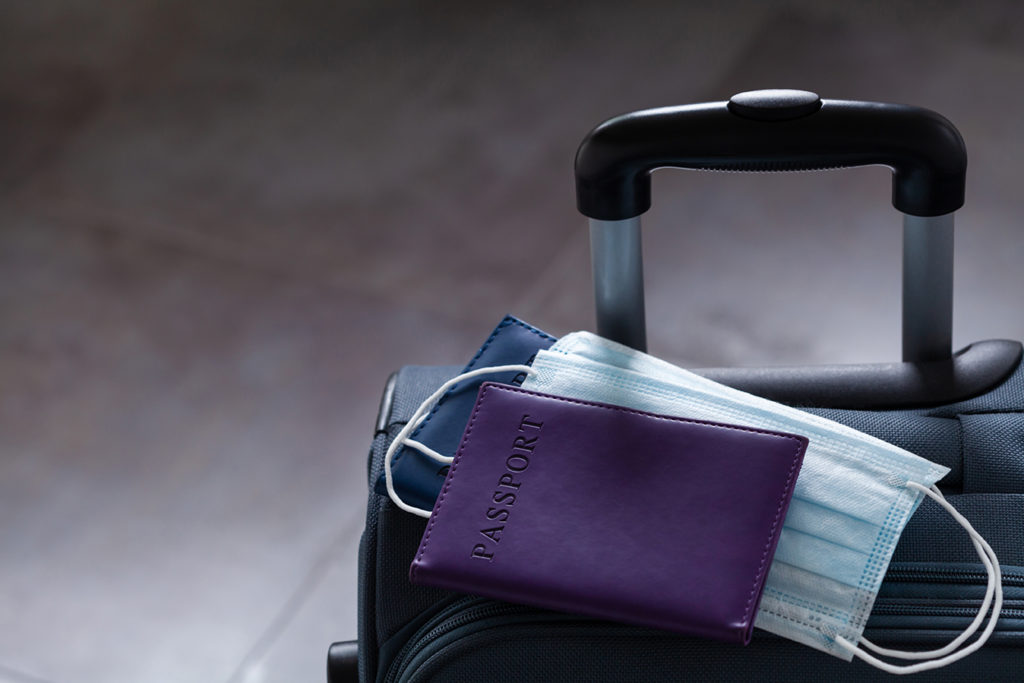The devolved governments of the UK continue to impose travel restrictions on countries throughout the world. In response to the fluctuating Coronavirus infection rates, the “safe” travel status of various nations have been subject to change, on some occasions at very short notice. Those returning from these countries with unacceptably high Covid-19 infection rates face quarantining for 14 days.
Visit this link to see an up to date list of “travel corridors” which are countries and territories from where you can travel to England and may not have to self-isolate. Travellers heading back to Wales and Scotland may be subject to different requirements. It’s incredibly important to be aware that failing to self-isolate is a criminal offence and anyone contravening the rules could face heavy fines.
Despite the uncertainty, it’s understandable that many people remain keen to get away, probably to try and unwind after the challenges that the last 6 months have presented. However, this could place your business in a tricky situation.
Am I Within my Rights as an Employer to Discipline my Staff if They Holiday in a Country on the Government’s Quarantine List?
As you’d expect, you would be within your rights to tell your staff that if they go ahead with a holiday to a country that is on the quarantine list they may face disciplinary action when they return. Employment expert Kiril Moskovchuk, from law firm Lawgistics, expressed his belief that “If the employee knowingly goes to a place subject to quarantine requirements and makes no efforts to resolve this issue with the employer beforehand, it will probably lay grounds for a warning.’
It’s recommended that you read the government guidance for employers and employees on their rights when self-isolating after returning to the UK. Although employers are advised to take a sympathetic approach, you are not obligated to do so by law. The financial consequences of the employee’s action may result in the business deciding that it needs to take more severe measures.
Dismissal should remain the last resort. It is well worth noting that terminating an employee’s employment due to their requirement to self-isolate upon return to the UK in accordance with public health guidance could be deemed as an unfair dismissal by a tribunal.
Lawgistic’s website provides the following reminder, “A dismissal must be for a fair reason, for example, capability and conduct or redundancy. The dismissal must also be a reasonable response considering all the circumstances and a fair procedure must be followed.
Employees who are forced to travel to deal with a family emergency may be able to take unpaid leave during the period of self-isolation. Alternatively, you may agree with the employee for a further period of annual leave to be taken during the quarantine period. Though if as their employer you request that your staff member takes it as a holiday, a minimum notice of twice the length of the requested holiday must be served.
As an Employer What Are my Rights in Regards to Employees that Return from a Country that was Added to the Government’s Quarantine List Whilst They Were Away?
The situation is obviously different if the quarantine requirement was imposed after the team member departed. Unless there were prior warnings that the country could potentially be added to the quarantine list prior to travelling, then it appears there would have been little the individual could have done to prevent the situation, short of not travelling anywhere at all, and few employers would want to impose such a restriction.
Lawgistics recommend that “Employers and employees should work together in these cases to find a solution, which could involve working from home or being put back on furlough (if eligible). Employees could take extra annual leave, unpaid leave.” “As is often the case, there is no one-size-fits-all approach, and employers should take advice.”
Can I Cancel an Employee’s Leave That I’d Already Authorised?
As an employer you can cancel annual leave that you have already authorised but only if you give the minimum notice. As per the scenario where you request they take the quarantine as leave, the minimum notice for cancelling the leave is twice the length of the requested holiday period, unless you reach a mutual agreement otherwise. So, for example, that equates to two weeks’ notice if you wish to cancel one week’s holiday leave.
However, this should obviously be avoided if alternative solutions exist. The employee stands to incur cancellation penalties when in all likeliness they have done nothing other than book a break to a destination that wasn’t on a government list at the time of doing so.
We recommend a pro-active approach to tackle the above issues. Communicating with your staff and letting them know what the complications and implications of travelling might be before they do so, will help make any subsequent conversations far smoother. Hopefully managing the potential outcomes will also prove much more efficient. For example, if they can work remotely, the individual in question could take their equipment home with them after their last day at work before their holiday. If they end up needing to quarantine then they will at least be ready to work from home upon their return to the UK without it impacting the business.


